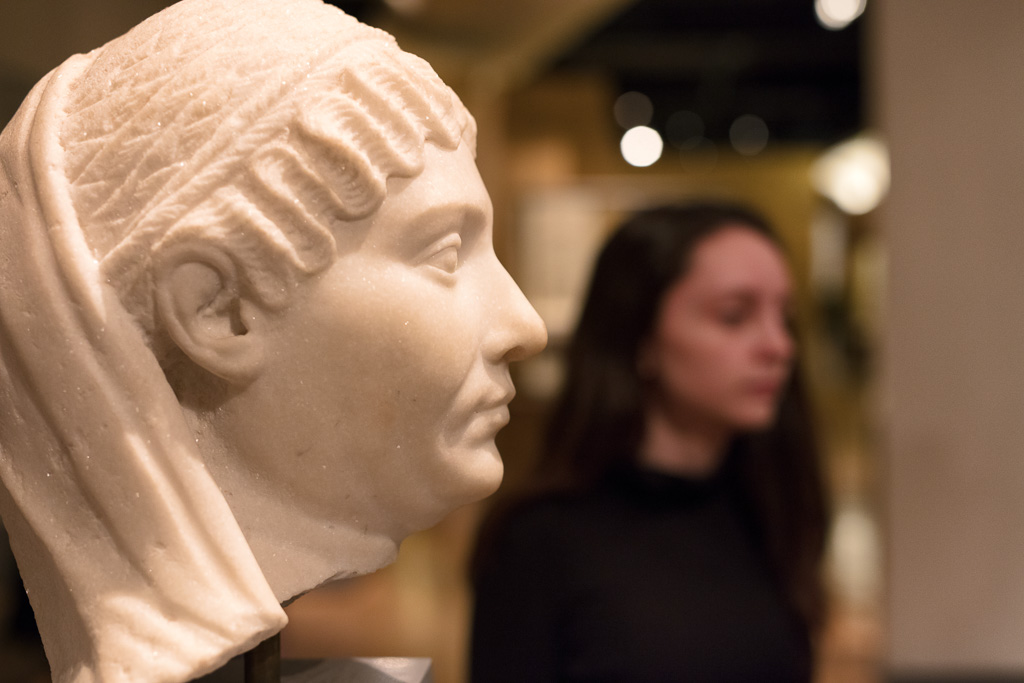Further to yesterday’s museum post, I note that museum exhibits serve as an obvious reminder about the fleeting nature of life. We who are gaze at those who were but are no more. Dinosaur fossils. Mummified remains. Roman busts.
Whenever I visit the local museum, the Royal Ontario Museum, I pay a visit to the gallery of classical busts. I like to pretend I’m schmoozing with people from the past. Afternoon drinks with old (really old) friends. Selfies to post on the ancient Roman social media site, VoltusLiber. Unfortunately, after a few drinks, their eyes start to glaze over.
Sculptors have always had difficulty with the eyes. They look blank and eerie. In fact, Roman sculptors working in marble had no trouble at all with eyes because they painted them in. They had no scruples about painting their work to make it as lifelike as possible. But in the intervening years, the elements have worn away the paint. It was the sculptors who came later—Renaissance and Neo-Classical artists—who complained about the eyes because it never occurred to them that classical artists had painted their marble. Even where they did suspect that their predecessors were more relaxed, conventions had become so entrenched that later artists couldn’t persuade their patrons to try new things. And so blank and eerie eyes gaze back at us across the centuries.
To my way of thinking, blank and eerie eyes may be more realistic than carefully painted irises and pupils. They say eyes are the window of the soul. It’s impossible to say who the first “they” is, but people have been saying this since at least the days of Cicero who, ironically, is the subject of many blank-eyed sculptures. The problem is that no matter how precisely we represent a person’s eyes, the sense of an essential personality conveyed by that representation is illusory. Maybe our belief about eyes has something to do with empathy. Humans are keyed to feel something when they look into another’s eyes.
However, personal experience (and rational thought) contradict this belief. People with visual impairments give the lie to the “window to the soul” conceit. When I gaze into a person’s injured or unseeing eyes, their eyes tell me nothing about them as a whole person. Conversely, the fact that they cannot gaze into my eyes in no way hinders them from perceiving me as a whole person. Whatever mysterious alchemy constitutes the self does not depend on eyes. Similarly, the belief that we can learn something about ancient cultures by gazing into representations of ancient eyes is silly. In fact, ancient sculptors may have done us a service by leaving us with blank and eerie eyes; they force us to seek out more credible sources for our convictions about what our predecessors were like.

One reply on “To the Museum or Bust!”
[…] post yesterday featured a blank-eyed Roman bust and dwelt upon the old cliché: the eyes are the windows to the soul. I wanted to know where the […]